Click Here to join our 30 day challenge to learn Hiragana
In Japanese, what are U-verbs? Are they the same as Ru-verbs?
In this blog, we will be talking about the difference between Japanese U and Ru verbs. As well as their different forms.
We will be releasing more similar articles over the coming weeks! So keep your eyes peeled on this blog.
What do you know about verb conjugation? In the Japanese language – you must “conjugate” a verb into a tense to convey the meaning of your sentence.
But before we can conjugate a verb, we would need to differentiate 「る」and 「う」verbs because both have different conjugation rules! We would be talking about 2 special cases in another series!
For example, let’s use the verb “swim”. The verb can be conjugated into the present, past, and future tenses. so it would turn out to be:
- Swim
- Swam
- Will swim
The verbs are conjugated to Present(ます), Present Affirmative(Dictionary form), Present Negative(ない form)and Past Affirmative(た form).
て form, itself, is used to combine verb sentences together. There is no past tense for て form, but the tense of the sentence is determined by the tense of the last verb of the sentence.
Now that you have understood the meaning of “conjugate”, let’s take a look at more verb illustration with sentence examples!
-
Meet
-
Keep (a luggage)
-
Rain
-
Walk
-
Go
-
Hurry
-
Think/Guess/Suppose
-
Buy
-
Return (things)
-
Return/Go Home
-
It takes (time)/Cost
-
Write/Draw
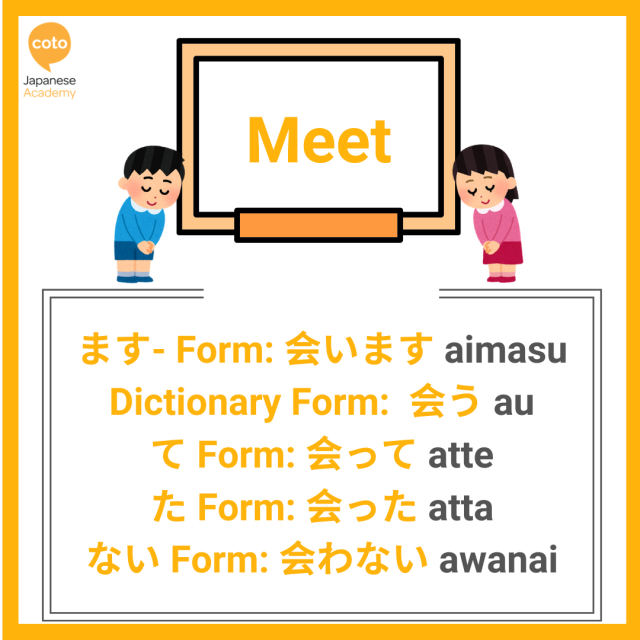
Verb 1: Meet
きのう、ともだちにあった。
Kinou, tomodachi ni atta.
Yesterday, I met my friend.
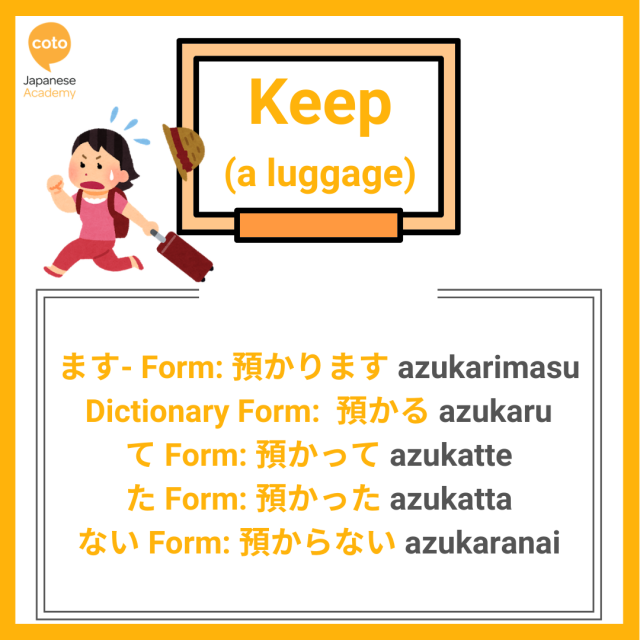
Verb 2: Keep (a luggage)
ともだちのにもつをあずかります。
Tomodachi no nimotsu o azukarimasu.
I keep my friend’s luggage.
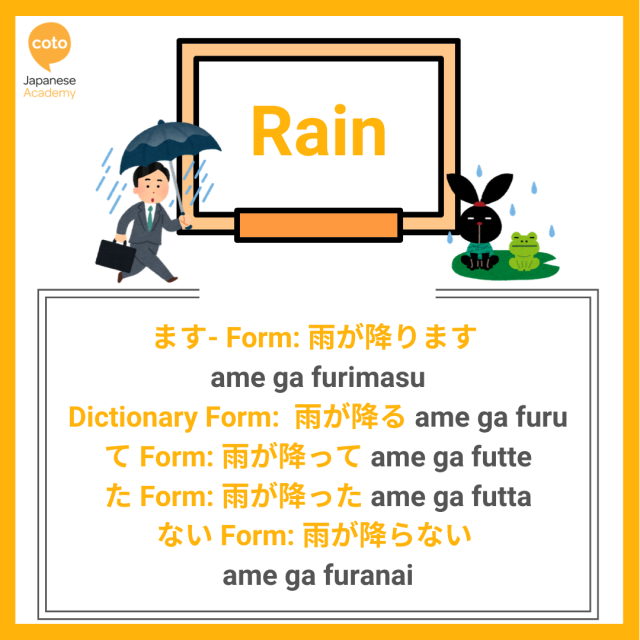
Verb 3: Rain
あしたはあめがふらない。
ashita wa ame ga furanai.
It would not rain tomorrow.
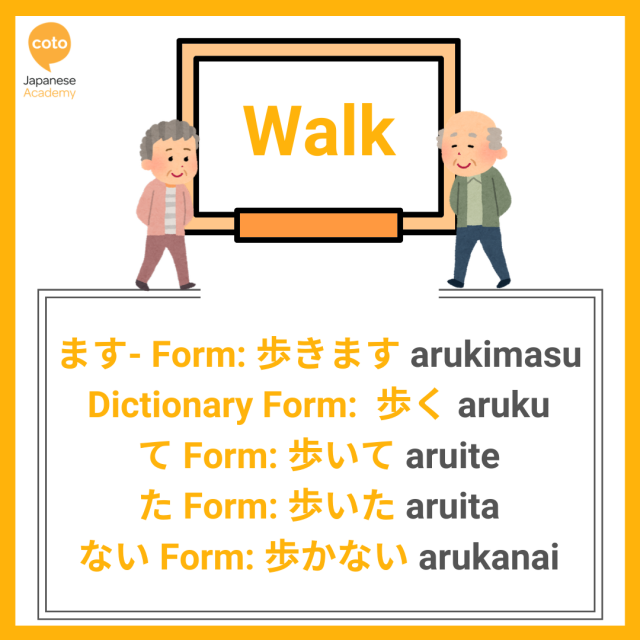
Verb 4: Walk
さっき、こうえんまであるきました。
sakki, kouen made arukimashita.
I walked to the park just now.

Verb 5: Go
ことしはシンガポールにいって、そしてバリ島にいった。
kotoshi wa singapo-ru ni itte, soshite baritou ni itta.
This year I went to Singapore, after which, I went to Bali.
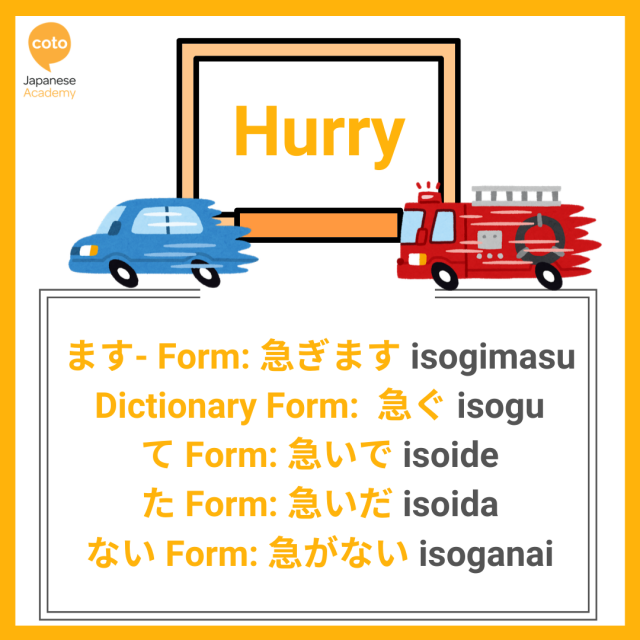
Verb 6: Hurry
いこうとはがっこうにおくれていたから、いそいだ。
Imouto wa gakkou ni okureteita kara, isoida.
Because my younger sister was late for school, she was in a hurry.
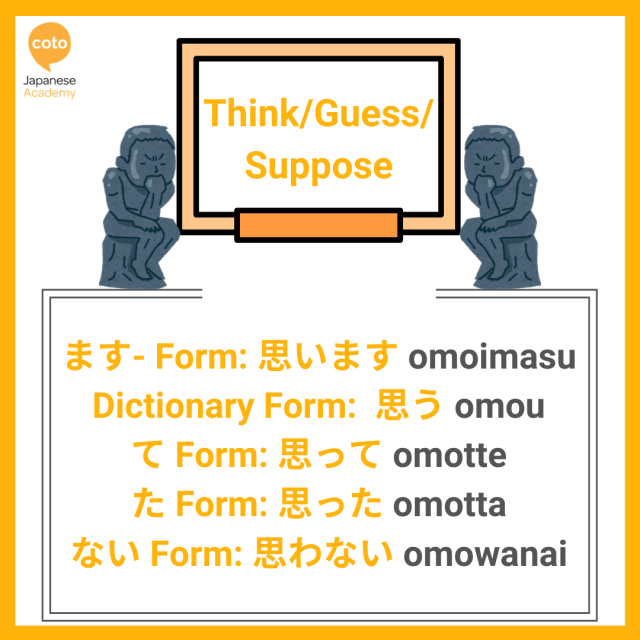
Verb 7: Think/Guess/Suppose
このえいがはおもしろいとおもいます。
kono eiga wa omoshiroi to omoimasu.
I think this movie is funny/interesting.
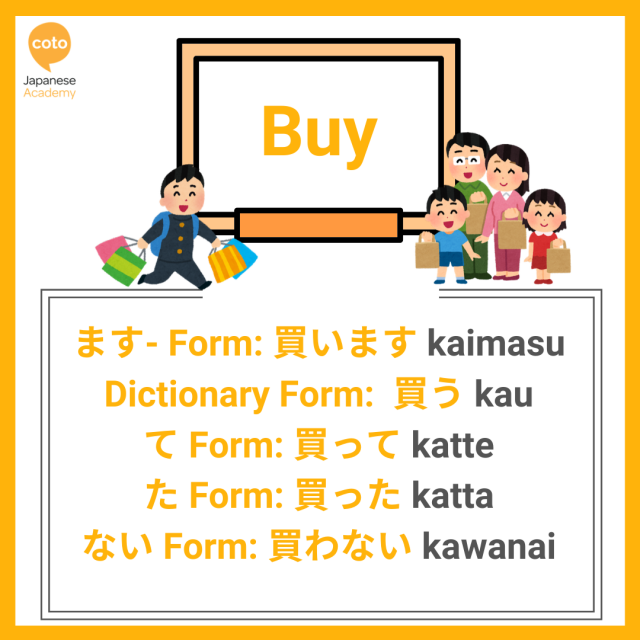
Verb 8: Buy
このドレスをかった。
kono doresu o katta.
I bought this dress.

Verb 9: Return (things)
きのう、やまださんはホッチキスをかえした。
kinou, yamada-san wa hocchikisu o kaeshita.
Yesterday, Yamada-san returned the stapler.
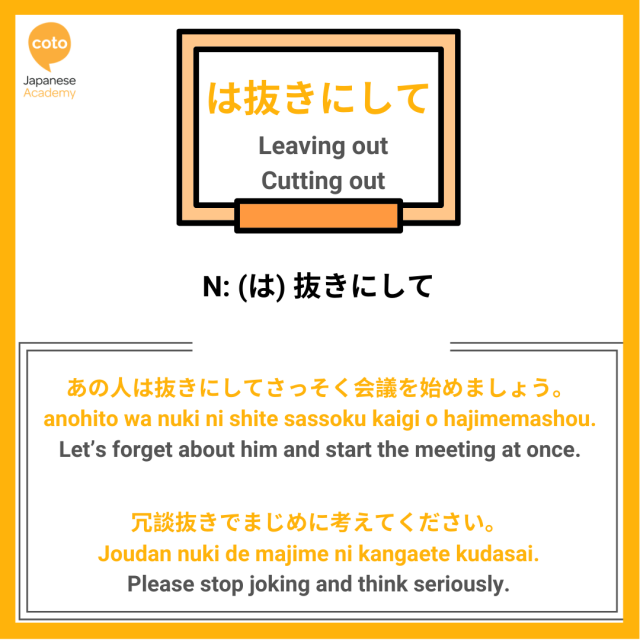
Verb 10: Return/Go Home
きょうはともだちのうちにとまるから、うちにかえれられない。
kyou wa tomodachi no uchi ni tomaru kara, uchi ni kaererarenai.
Because I will stay at my friend’s place, I won’t go home.
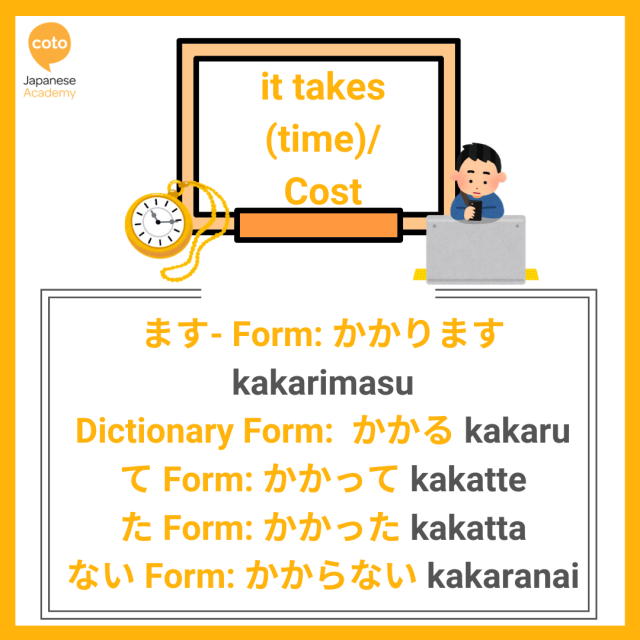
Verb 11: It takes (time)/Cost
けっかをみるには、じかんがかかります。
kekka o miru niwa, jikan ga kakarimasu.
To see results, it takes time.
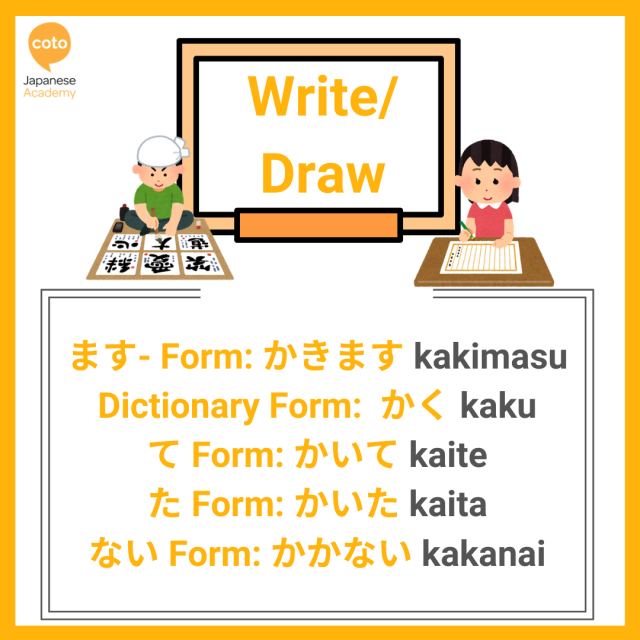
Verb 12: Write/Draw
はこねのけしきをかいた。
hakone no keshiki o kaita.
I drew Hakone’s scenery.
Keen on learning more about Japanese verbs? Click on the blog article for more information!
How to conjugate te form. Visual Guide to Japanese Verbs 2021